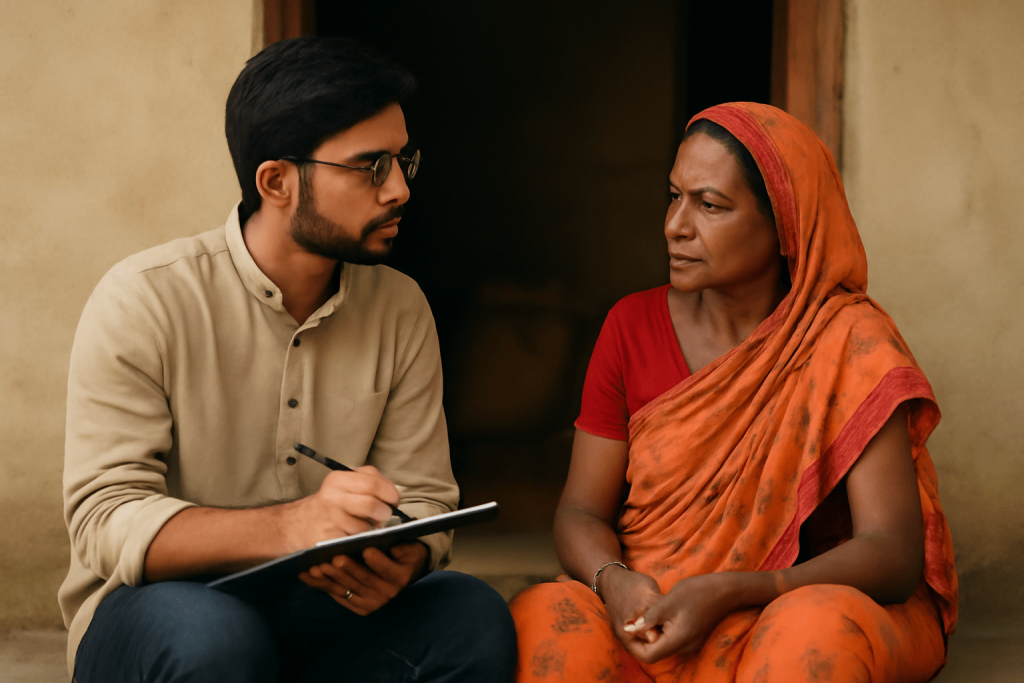The Post Graduate Program in Development Management (PGP DM) stands as a beacon for those seeking to master the intricacies of managing and leading Social Purpose Organizations. Tailored not only for seasoned professionals in the Social Sector but also for freshers and individuals eyeing a transition into this domain, the program is a testament to the vision of ISDM founders—Ravi Sreedharan, Sharad Agarwal, Gaurav Shah, and Suparna Diwakar. By amalgamating management principles with the social sector’s ethos, the curriculum finely tunes itself to the unique demands of the Development Sector.
The Uniqueness of Development Management
1. Expansive opportunities in the Social Sector
Dispelling the misconception that the Social Sector lacks job opportunities, it is, in fact, a vast field. Encompassing thematic areas from health to education, individuals can find roles in fundraising, digital marketing, management, advocacy, research, and content creation. With increased philanthropy and stringent CSR mandates, the sector is witnessing a surge in funding. The Development Management program emerges as the bridge, addressing the need for the right talent. It not only equips students with the skills required for various roles but also nurtures the entrepreneurial spirit, enabling graduates to establish their Social Purpose Organizations.
2. Job satisfaction beyond remuneration
In an era where meaningful work, work-life balance, and fair compensation are paramount, the Social Sector emerges as a sanctuary. The Development Management program serves as the conduit, providing students with the skills and networks necessary to secure jobs aligned with their values. Beyond a paycheck, it facilitates job satisfaction and empowers individuals to make a tangible impact on the world.
3. Cultivating management dexterity
Effective management skills are indispensable in any field. The Development Management Program distinguishes itself by seamlessly integrating management concepts such as design thinking, systems thinking, and financial perspectives with social sector requisites like ethics, sustainability, collaborative work, and field experience. The outcome is a professional not merely versed in management but possessing the heart of a Social Sector leader.
4. Insights from sector pioneers
Management within the Social Sector demands a distinct skill set. Unlike industries thriving on competition, collaboration is paramount here. Learning the art of effective management and collaboration requires insights from those who’ve successfully navigated these waters. The Development Management Program provides a unique opportunity to interact with sector leaders, enriching students with practical wisdom and real-world perspectives.
5. Versatility through project exposure
The program is not just a conventional classroom experience but a dynamic educational journey. Students engage in diverse projects, honing their teamwork and reflective skills. Workshops, guest lectures, rural immersions, and interactions with sector leaders foster a broad skill set, providing students with a multifaceted learning experience.
6. Work experience not a barrier
Breaking away from the convention, the Development Management Program is inclusive, welcoming both seasoned professionals and freshers. While the program recommends two years of work experience, freshers can glean substantial value from the PGP DM. Volunteering experience with NGOs or other Social Purpose Organizations is highly valued, making the program accessible to a broader audience. The fundamental prerequisites are passion and the drive to make a meaningful impact.
7. Inclusive across backgrounds
Open to professionals from diverse backgrounds—doctors, lawyers, engineers, artists, and accountants—the Development Management program accommodates a spectrum of skills. Beyond technical expertise, the course sheds light on leveraging existing knowledge for effective contributions to the Social Sector. The inclusive nature of these programs fosters an environment accepting of diverse identities, making them spaces that transcend traditional boundaries.
8. Urgent demand for social sector professionals
The aftermath of the Covid-19 pandemic exacerbated pre-existing societal issues, pushing over 230 million Indians back into poverty. The Social Sector now requires committed professionals armed with management skills, knowledge, and tools to tackle these complex issues. The Development Management Program, blending sustainable development and management, becomes a crucial resource to prepare individuals for the urgency of this situation.
In a field where conventional management education may have its limitations, ISDM’s PGP DM is seen as a positive force for change. It provides a well-rounded set of skills, insights from industry leaders, and a platform for diverse experiences, making the Development Management program an appealing alternative to a typical MBA. In the ever-changing landscape of social impact, ISDM quietly stands as a reliable institution, shaping leaders capable of making a meaningful difference in the Social Sector.




